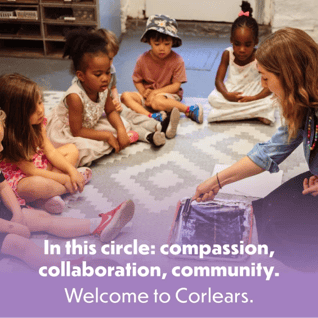There are few, if any, holidays where the taught myths and the historical realities are farther apart. During Thanksgiving, we encourage families to honor the lives and legacy of the Indigenous people of this land by critically examining the dominant stories perpetuated by this holiday.
Here are a few tips for how discuss the true history of Thanksgiving with your children, and how to move beyond the singular narratives that reinforce negative stereotypes and myths about Native People.
Discussing Thanksgiving's Counter-Narratives
If you are engaging in Thanksgiving-themed activities, texts or discussions at home, consider the following racial literacy terms as you make choices:
-
Bias: Preference or favoritism of one idea, person, or group over another.
-
Omission: Completely leaving out one or more perspectives.
-
Stereotype: Making generalizations about a group of people based on one part of their identity.
To support critical thinking, consider asking the following questions around the dominant stories of Thanksgiving:
-
What perspectives, practices, and/or people are centered or valued?
-
Does the author use their power to repeat stereotypes or to challenge them?
-
If we only knew about Thanksgiving from this perspective, what would we think is true? Why is that a problem?
It is essential for children to hear and grapple with counter-narratives in developmentally appropriate ways. Books for Littles shares a comprehensive book list of counter-narratives that allow for a depth of thought and understanding, center human stories, and face history.
Other Ways to Honor Indigenous People This Thanksgiving
As you sit down at the table, recognize that where you are was once the home of a people from whom it was taken.
Instead of perpetuating myths, start your festivities by acknowledging the land you are inhabiting. Families can do this by referencing Native Land Maps to discover the names of the indigenous peoples’ land you are on. Discover more information about land acknowledgments and their importance on the Native Governance Website.
Educating our children and ourselves to learn from history in honest and complete ways will allow us to move forward, without repeating injustices from the past. When we share the whole story with our children without bias, omission, and stereotype, it allows our hearts to expand and our consciousness to grow as we strive to create a more equitable world.
More Resources for Talking About Race and Identity
Visit the Corlears School Blog for more resources for discussing race, social justice work, and identity, including:
-1.jpeg?%20Inclusion%20(1)-1.jpeg&width=290&name=Mansi%20Vasa%2c%20Assistant%20Head%20of%20School%2c%20Director%20of%20Equity%20%26%20Inclusion%20(1)-1.jpeg?%20Inclusion%20(1)-1.jpeg)


